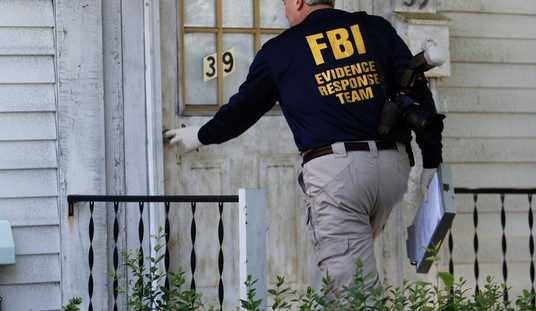Gun owners took notice when Raul Torrez, the Democratic Attorney General of New Mexico, refused to enforce or defend Gov. Michelle Lujan Grisham’s original executive order suspending the right to carry in Albuquerque and Bernalillo County, and for good reason. It’s rare to see an elected Democrat do anything that could remotely be considered pro-Second Amendment, but it appears that Torrez’s objections were more a sign of just how flagrantly unconstitutional Grisham’s edict was than an indication of his own support for the right to keep and bear arms.
This week Torrez joined forces with Bernalillo County Sheriff John Allen, who also refused to enforce Grisham’s carry ban, to call on the legislature to change the rules around the state’s “red flag” law; moves that would make it much easier to file and grant petitions “temporarily” stripping the right to keep and bear arms to those deemed a danger to themselves or others by a judge.
Torrez looked at other states’ red flag laws for ways to make New Mexico’s version more effective. One way was to expand the law to give immediate search and surrender authority which updates the current law which gives people up to 48 hours to surrender their firearms voluntarily if an Extreme Risk Firearm Protection Order is in place after a judge rules that a person poses a significant danger of causing imminent personal injury to themself or others.
“It doesn’t make a lot of sense to keep the firearms in their possession in their home for an additional 48 hours. It also doesn’t make sense to prohibit law enforcement from conducting a search of the premises to make sure that all the firearms are actually recovered,” Torrez said.
The second change Torrez proposed was to expand the definition of a reporting party to include law enforcement and medical professionals as well as to add a provision allowing a reporting party’s name and contact information to be redacted to prevent retaliation.
“We actually have a case on appeal right now in the New Mexico Court of Appeals on that exact issue on whether or not police officers can themselves act as a reporting party. Again, when you look at most jurisdictions across the country here, we allow frontline police officers and medical professionals to serve as recording parties,” Torrez said.
The third change proposed was to align other laws flush with the Extreme Risk Firearm Protection Act to trigger a law enforcement referral.
Currently, if a person is deemed incompetent to stand trial or is otherwise “adjudicated as a mental defective,” there is no mandatory referral to the National Crime Information Center, or NCIC, database notifying law enforcement that the person should be flagged.
“While there are rules in place to mandate the recording of those judicial actions so that the information is uploaded into NCIC. It doesn’t cross over to law enforcement as an identification,” Torrez said.
If someone is so dangerous that a hearing has to be held without their knowledge or participation and their guns seized immediately afterward, then why would that individual not be placed under a 72-hour hold for a mental health evaluation or taken into custody to face criminal charges? Beyond due process concerns, one of my issues with “red flag” laws is that they’re used as a way to get around the crumbling mental health systems we have in most states. There are only a small handful of states (including Maine) that have any sort of mental health component to them, either in determining whether someone is a danger to themselves or others or providing treatment to that individual after that determination has been made.
Expanding who can file for a “red flag” law and allowing it to be done anonymously opens the door to all kinds of abuses. Again, I think “red flag” laws are inherently problematic, but it would be better if New Mexico limited the filing of petitions solely to police and mental health professionals rather than the current standard, which as Torrez notes may not allow for law enforcement to file a petition at all. I don’t see any reason whatsoever to allow these petitions to be filed anonymously, however. Torrez is concerned about retribution on the part of someone subject to an Extreme Risk Protection Order, but what about the prospect that an ERPO petition could be used as a form of retaliation or retribution as well? Torrez’s suggestion also violates the spirit of the Sixth Amendment, which guarantees that “the accused shall enjoy the right… to be confronted with the witnesses against him”.
That only applies to criminal cases, and “red flag” petitions are heard in civil court, which is also why the vast majority of ERPO laws don’t offer the accused the opportunity to have a public defender if they can’t afford an attorney of their own.
The third proposed change sounds more reasonable on its face, but could also prove to be problematic in practice. If someone is prohibited from possessing a firearm because they’ve been adjudicated as a mental defective, that should be reported to NICS. But given the supposed temporary nature of Extreme Risk Protection Orders, what guarantees could be put in place that the expiration of an order would result in their removal from the NICS system? Could a “red flag” order that lasts for 12 months end up serving as a permanent prohibition on possessing or purchasing a firearm going forward?
It’s my belief that the main reason for “red flag” laws is to allow politicians to say they’re “doing something” about dangerous people without taking the most important step of all: fixing our broken mental health systems that don’t have the space to house those who are in acute distress. Building more beds and hiring more staff (from doctors to custodians) comes with a real financial cost, but “red flag” laws only require a judge, a prosecutor, and a few police officers in order to be enforced. So what if dangerous people are left to do dangerous things with knives, gasoline, matches, or even fists and feet? Lawmakers can still say they’ve taken action, and that seems to matter more to them than taking the substantive steps that are necessary to effective deal with those individuals who pose a threat to themselves or the community at large.








